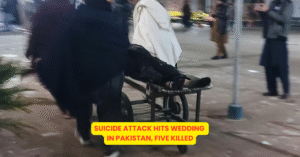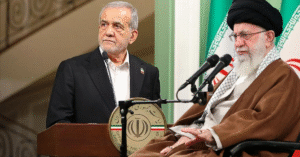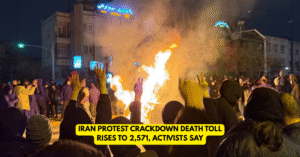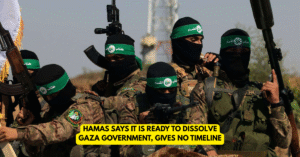GAZA, July 18, 2025 — In a moment that has shaken the global conscience, the United Nations has condemned an Israeli airstrike that struck the Holy Family Catholic Church in Gaza—the only Catholic place of worship in the region—claiming the lives of three civilians and injuring at least ten others on July 17. The church had become a fragile refuge for dozens of displaced families seeking shelter from the ongoing war.
“Attacks on places of worship are unacceptable,” said Stephanie Tremblay, spokesperson for UN Secretary-General Antonio Guterres, in a statement that reflected both sorrow and outrage. “Those seeking safety must be protected, and humanitarian aid must be allowed in—freely, fully, and immediately.”
The United Nations reiterated its urgent appeal for a ceasefire and called for the unconditional release of all hostages, warning that the spiraling crisis continues to cost innocent lives every day.
Israel Responds with Regret, Promises Investigation
In the aftermath of the strike, Israeli Prime Minister Benjamin Netanyahu expressed “deep regret,” describing the incident as the result of “stray ammunition.” He added, “Every innocent life lost is a tragedy. We share the grief of the families and the faithful.”
The Israeli Foreign Ministry confirmed that the Israel Defense Forces (IDF) have launched an internal investigation, with officials pledging to release findings transparently.A Humanitarian Crisis Deepens
The airstrike on the church is just one episode in what humanitarian agencies are calling a rapidly deteriorating situation in Gaza. According to the UN Office for the Coordination of Humanitarian Affairs (OCHA), Israeli air raids over the past 24 hours have struck multiple shelters where displaced families had gathered, leading to more deaths and injuries.
Between July 8 and July 15, over 11,600 people were newly displaced. The total number of displaced individuals since the collapse of the ceasefire on March 18 has now surpassed 737,000—roughly 35% of Gaza’s population.
“Gaza is on the brink of total collapse,” OCHA warned, highlighting the destruction of homes, the collapse of clean water infrastructure, and an alarming shortage of fuel for hospitals and ambulances.
Desperate Conditions, Urgent Appeals
With drinking water scarce, many residents have turned to the polluted waters of the Mediterranean Sea—this, despite an Israeli-imposed ban on swimming and fishing. For the first time in over 135 days, Israel allowed a small amount of benzene—crucial for powering ambulances and generators—into Gaza, but it remains far below critical needs.
“Lives literally depend on diesel, benzene, and basic shelter materials,” said OCHA in a plea to the international community. “These are not luxuries. These are lifelines.”






